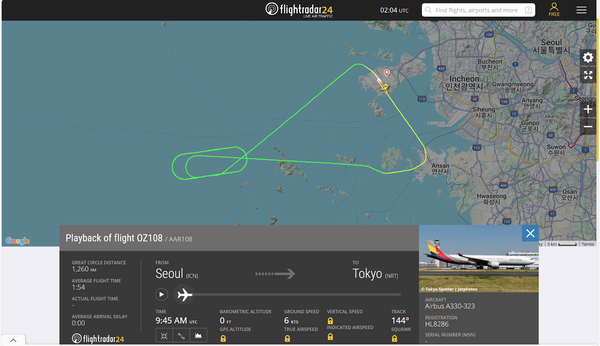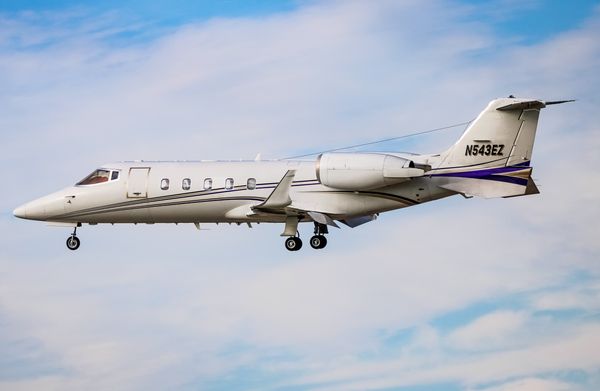The aviation industry is ruthless; that's a fact. Time and time again, we hear airlines going belly-up due to financial issues or conflicts relating to their administration. It can be challenging for airlines to turn a profit, especially during low-demand periods.

However, today, we will look at a rather interesting case of an airline that recorded significant revenues and subsequent profits during the third fiscal quarter of this year. These represented a massive turnaround for this carrier compared to the same quarter last year.
That airline? None other than Icelandic low-cost carrier PLAY Airlines!
Tell 'Em to Bring Me My Money!
In an official report released by PLAY, the carrier noted a massive revenue increase in the third fiscal quarter (Q3) of this year. PLAY's Q3 2023 revenues were up an impressive 84% from Q3 2022. PLAY's total revenue in Q3 2023 was $110.2 million compared to just $59.9 million in the same quarter last year.

With this massive revenue boost came a significant profit as well. In Q3 2022, PLAY reported a net loss of $2.9 million. In this year's Q3, PLAY posted a $5.2 million net profit, a huge turnaround from last year.
Regarding fiscal quarters, "Q3" includes earnings for June through August of that year. Considering the months included in Q3, it might make sense why PLAY made huge financial strides this year. June through August, for much of North America and Europe, represents the summer holiday period. This period sees a huge increase in travel demand, especially internationally.

The huge increase in demand was included in PLAY's official report. In July 2023, PLAY made a new record for number of passengers carried in one month. PLAY carried 191,577 passengers in July 2023 alone, with an impressive average load factor of 91.1%.
How Does PLAY Operate?
Being a low-cost airline, PLAY does things a bit differently when you compare it to other carriers operating across the Atlantic. One of these areas is charging extra for ancillary (additional) services like baggage, seat selection, and onboard refreshments, among others.

It's partly thanks to ancillary services that PLAY's financial performance was so strong in 2023's third quarter. In its official report, PLAY noted that it has placed "significant emphasis" on increasing ancillary revenue. This has resulted in improved product offerings such as bundled fares.
Low-cost airlines will typically offer "bundles," which can include a passenger paying an additional premium to get amenities like seat selection, bags, and even food included in their ticket. These premiums can range in price, so it's difficult to suggest how much extra they are exactly.

PLAY's average ancillary yield per passenger in Q3 2023 was $58, representing a 35% increase compared to last year when the carrier reported an average yield of $43 per passenger. Overall, PLAY's total ancillary revenue this year to date is 150% higher than at the same time last year.
There are other aspects of PLAY's operation as a low-cost airline that have contributed to its impressive financial performance this past quarter.
First of all, PLAY's fleet consists of exclusively Airbus A320neo-family aircraft. Aircraft commonality is a fine way to keep costs down regarding maintenance and training. Secondly, even though PLAY serves many major cities across Europe and North America, in many cases, the carrier's routes are to secondary airports, which might be a bit far from the city centers.

For instance, PLAY does not fly to New York City, though they may advertise as such. Instead, the airline flies to Stewart International Airport (SWF) in Newburgh, NY, about 70 miles from New York City. Similarly, instead of Toronto, PLAY serves Hamilton (YHM), 52 miles away. Instead of London Heathrow or Gatwick, PLAY serves Stansted Airport (STN), about 41 miles from London City Center.
Serving these secondary airports is usually cheaper for the airline, contributing to low costs. Such a strategy is employed by other leading low-cost airlines, including Ryanair in Europe and Allegiant Air in the United States. Furthermore, PLAY's business model includes the "hub-and-spoke" strategy by which the carrier has one centralized hub from where all its routes operate.

Having just one hub streamlines operations and keeps costs low. Furthermore, PLAY is based in Iceland which is also strategically located between mainland Europe and North America. As such, PLAY can advertise stopovers in Iceland for anyone interested and makes additional money off of this strategy.
Impressive Growth
PLAY Airlines began operations in 2021 and did not fly to North America until 2022. The carrier now serves 33 destinations, with five of them being in North America.

USA Today's "10Best" voted PLAY's cabin crew to be #1. This nomination was awarded following a four-week voting period from 10Best readers and fans, and PLAY cabin crew emerged as the top choice for cabin crew excellence.
When looking at the outlook for 2023 as a whole, PLAY anticipates finishing the year off with 1.5 million passengers carried during the year. Furthermore, PLAY expects a revenue of $280 million in 2023.
Comments (0)
Add Your Comment
SHARE
TAGS
INFORMATIONAL PLAY Airlines Icelandair Iceland Low Cost Airlines Informational ULCC Reykjavik Europe Finance Corporate EarningsRECENTLY PUBLISHED
 Tokyo-Bound Asiana Flight Experiences Engine Failure
An Asiana Airlines flight bound for Tokyo experienced an engine failure, prompting its return to Incheon International Airport.
NEWS
READ MORE »
Tokyo-Bound Asiana Flight Experiences Engine Failure
An Asiana Airlines flight bound for Tokyo experienced an engine failure, prompting its return to Incheon International Airport.
NEWS
READ MORE »
 Learjet Owned By Vince Neil Crashes Into Gulfstream Jet, 1 Fatality Confirmed
On February 10th, around 14:30 local time, a Learjet private jet aircraft crashed into another private jet after landing at Scottsdale Airport (SCF) in Arizona.
NEWS
READ MORE »
Learjet Owned By Vince Neil Crashes Into Gulfstream Jet, 1 Fatality Confirmed
On February 10th, around 14:30 local time, a Learjet private jet aircraft crashed into another private jet after landing at Scottsdale Airport (SCF) in Arizona.
NEWS
READ MORE »
 Seattle Plane Strike 2025: Japan Airlines and Delta Collision Raises Safety Concerns
Seattle-Tacoma International Airport saw a concerning incident on Wednesday morning when a Japan Airlines (JAL) plane clipped a parked Delta Air Lines jet while taxiing. Thankfully, no one was injured, but passengers described the collision as a frightening experience.
NEWS
READ MORE »
Seattle Plane Strike 2025: Japan Airlines and Delta Collision Raises Safety Concerns
Seattle-Tacoma International Airport saw a concerning incident on Wednesday morning when a Japan Airlines (JAL) plane clipped a parked Delta Air Lines jet while taxiing. Thankfully, no one was injured, but passengers described the collision as a frightening experience.
NEWS
READ MORE »



